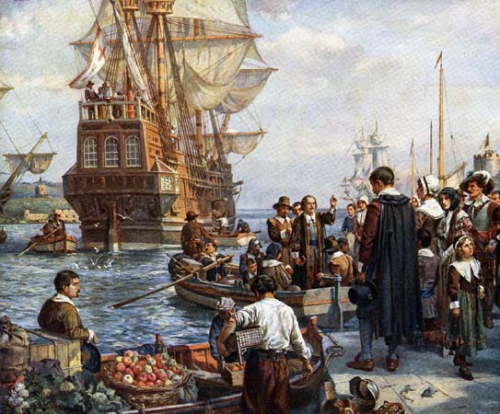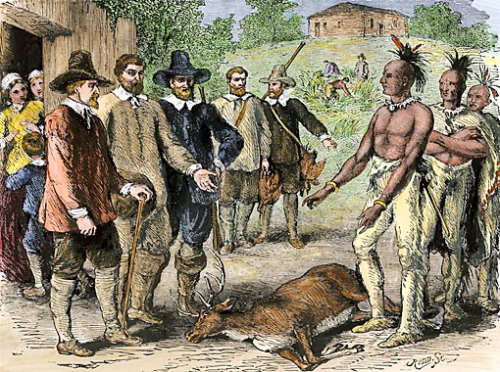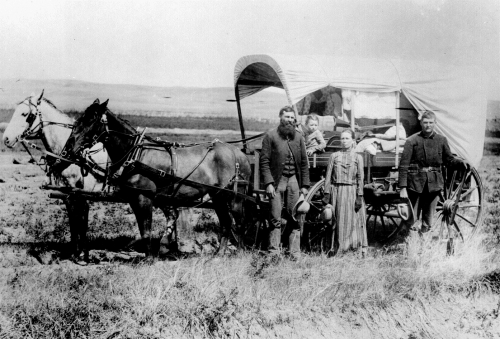La Science-Fiction est probablement le seul genre littéraire en perpétuelle évolution. Évolution non seulement dans la multiplication de ses sous-genres, mais aussi des sous-genres eux-mêmes. De plus, ces évolutions découlent elles-mêmes de celles de notre monde et de sa complexification. Qu’il s’agisse des réseaux, de la mondialisation, ou encore des enjeux climatiques, la Science-Fiction est la seule littérature à explorer toutes ces problématiques de manière lucide, là où le reste de la littérature n’offre plus que du divertissement – bien que la Science-Fiction elle-même subit à son tour les assauts inhibitoires de la culture de masse. Asimov affirmait avec justesse qu’ « on peut définir la Science-Fiction comme la branche de la littérature qui se soucie des réponses de l’être humain aux progrès de la science et de la technologie ». Et pour cause, comme le précisait Valerio Evangelisti dans le Monde Diplomatique, « en jouant avec les systèmes-mondes, en manipulant les hypothèses, la science-fiction constitue un de ces laboratoires où se lisent l’intime composition chimique du monde actuel… et les forces qui le feront entrer en explosion ».
« La mondialisation de l’économie, le rôle hégémonique de l’informatique, le pouvoir d’une économie dématérialisée, les nouvelles formes d’autoritarisme liées au contrôle de la communication, tous ces thèmes paraissent laisser indifférents les écrivains de la « grande littérature », du moins en Europe », ajoutait Evangelisti, toujours dans son article « La Science-Fiction en prise avec le monde réel ». De fait, la Science-Fiction est le seul genre littéraire à s’intéresser véritablement aux enjeux et problématiques liées au Progrès, mais surtout la seule à permettre une véritable critique sur des sujets aussi variés que complexes, justement grâce à l’extrapolation que son cadre maximaliste offre à l’auteur et au lecteur. À contrario, le nouveau roman façon Musso ou Levi ne s’intéresse qu’à la promotion d’un mode de vie foncièrement bourgeois, soit matérialiste, hédoniste et totalement déconnecté, non seulement des véritables problèmes, mais surtout des personnes auxquelles il s’adresse. En faisant la part belle à des protagonistes n’ayant d’autres soucis que ceux de leur garde-robe ou de leurs relations amoureuses fadasses, le nouveau roman cherche justement à instiller l’envie chez son lecteur, lui faire croire qu’atteindre ce modèle culturel doit être son objectif de vie, en sus de lui apporter réconfort et consolation grâce à un happy end systématique. Or, la Science-Fiction n’est pas une littérature de réconfort ; c’est une littérature du réel. Quel intérêt aurait eu 1984 s’il disposait d’une fin heureuse ? Quel succès aurait eu Le Meilleur des Mondes s’il ouvrait la voie au triomphe de protagonistes, en lieu et place de leur résignation ? Cependant, la dystopie n’est pas seule à faire prendre conscience aux lecteurs la réalité du Pouvoir ou de la machine capitaliste ; le cyberpunk, et même le space opera, lui ouvrent autant de grilles de lectures qu’il pourrait y avoir de romans.

C’est justement cette élasticité et l’esprit critique inhérent à la Science-Fiction qui nous poussent à nous interroger sur sa nature gramscienne. La théorie de l’hégémonie culturelle développée par Gramsci s’épanche longuement sur le rôle organique que doivent remplir les intellectuels, mais aussi les littérateurs. En posant les problématiques propres aux fonctions nationales de la littérature, Gramsci fut l’un des premiers à proposer une sociologie de la littérature. Le « bloc historique » qu’il évoque pour renverser l’ordre établi est composé de ces mêmes intellectuels et littérateurs, car ils ont un rôle de cheville médiatrice entre les classes, à l’instar de Pasolini. La Science-Fiction remplit elle aussi cette fonction. Elle est une littérature nationale populaire en France et dans les pays anglophones, et joue toujours un rôle critique vis-à-vis du « système », du capitalisme, de la société de consommation, ou des soi-disant progrès de l’occidentalisme. À ce titre, l’on ne peut que remarquer la justesse de Gramsci qui refuse de séparer la littérature de l’ensemble des productions symboliques d’une société, et des fonctions qu’elles remplissent, là où Marx n’y voyait qu’un bien marchand comme un autre. Or, comme susmentionné, la Science-Fiction est le seul genre à s’occuper de la prise de conscience de ses lecteurs de la réalité de notre monde, là où les autres genres se concentrent sur leur fonction de divertissement et de propagande hédoniste, conformément aux exigences d’une culture de masse s’appuyant sur des logiques capitalistiques, où « dominent les histoires intimistes, qui auraient pu se passer il y a cinquante ans – ou qui pourraient se produire dans cinquante ans… Amours, passions et trahisons perpétuent leur consommation sous une lumière tamisée, dans un monde aux couleurs pâles et aux fragrances de poussière et de talc », pour citer une nouvelle fois Evangelisti. Ce dernier prouve le réalisme du genre lorsqu’il se demande « quel autre genre littéraire a-t-il jamais consacré un roman aux mécanismes des crises économiques ? », question à laquelle seules des œuvres de Science-Fiction nous viennent à l’esprit.
« Avec la métaphore, la science-fiction a su percevoir, mieux que toute autre forme de narration, les tendances évolutives (ou régressives) du capitalisme contemporain. Cela lui a souvent permis de dépasser les limites habituelles de la littérature et de se répandre dans les mœurs, les comportements, les façons de parler ordinaires, dans la vie quotidienne, en un mot. »
-Valerio Evangelisti-
Or, la puissance de la Science-Fiction, contrairement au nouveau roman ou à la bit-lit, est qu’elle s’adresse à tous. Bien sûr, elle n’est pas exempte d’auteurs qui versent dans la masturbation intellectuelle et pour lesquels il faudrait être soi-même expert en physique quantique pour y comprendre quelque chose, mais globalement le genre n’est pas aussi élitiste que les maisons d’édition et les lecteurs de mauvais romans tentent de le faire croire. Il n’y a pas besoin d’avoir un bagage scientifique pour comprendre Neuromancien, ni d’un diplôme en sciences politiques pour cerner la satire des 500 Millions de la Bégum. Au contraire même, ces ouvrages sont les exemples par excellence de l’universalité des problématiques qu’aborde la Science-Fiction, et de son accessibilité au plus grand nombre. En cela, les écrivains de ce genre littéraire jouent totalement leur rôle d’intellectuels organiques, souvent méprisés d’ailleurs par une auto-proclamée « véritablement vraie » littérature qui caracole dans des concours littéraires pompeux qui tiennent plus de la bulle sous-culturelle que du phénomène qu’on chercherait à nous faire croire. Ils constituent une caste déracinée qui ne représente plus qu’elle-même. Les écrivains de Science-Fiction ne figurent ni au Goncourt, ni dans aucune Académie que ce soit ; et c’est justement parce qu’ils font de la littérature populaire qu’ils sont considérés avec dédain. Ernst Jünger commettait d’ailleurs cet impair en refusant de reconnaître son Héliopolis comme une œuvre de Science-Fiction. L’on oublie trop souvent que nos plus grands auteurs se vantaient de faire de la littérature populaire, précisément pour s’opposer à une forme de bien-pensance culturelle et bourgeoise. Contrairement à leurs détracteurs, les auteurs de Science-Fiction représentent toujours l’autoconscience culturelle, parce qu’ils apportent une critique de la classe dominante là où les élites intellectuelles en Europe ne s’intéressent plus qu’à leur propre renommée, quitte à passer quelques compromis avec ce qu’ils sont censés combattre.






 del.icio.us
del.icio.us
 Digg
Digg

